Prevent Winchester Plant Disease: Spring Garden Health Scan
- Spring in Ottawa/Winchester creates ideal conditions for plant diseases due to dampness and temperature swings.
- Perform a "Spring Garden Health Scan" to detect issues early.
- Common diseases include Powdery Mildew, Black Spot, and various Leaf Spots.
- Key prevention steps: soil health, smart watering, garden cleanup, proper spacing, and choosing resistant varieties.
- Use eco-friendly methods first when managing disease.
Ready to ensure your garden thrives this season? Request a quote for professional garden care today!
Introduction: Wake Up Your Winchester Garden & Ward Off Disease!
Alright Winchester green thumbs, feeling that spring buzz? After a long Ottawa winter, the urge to dive back into gardening is strong! Your flower beds and veggie patches are stretching awake, maybe a little groggily like us emerging from hibernation. But hold your trowels for just a second! Before you get carried away with grand landscaping plans and dreams of prize-winning pumpkins, let's chat about keeping your plants fighting fit and dodging those sneaky diseases that love damp spring weather.
We're introducing the 'Spring Garden Health Scan' – think of it as a quick wellness check-up for your leafy friends to catch potential problems *before* they become big headaches. Why is this so crucial right now? Because Ottawa's spring, bless its unpredictable heart (hello, potential late frost near neighbouring Greely!), with its soggy soils and wild temperature swings, can be a VIP invitation for fungal fuzzies, bothersome blights, and other garden griefs. Performing this simple scan is your secret weapon for preventing plant diseases and ensuring a healthier, happier Winchester garden all season long. Let's get scanning!
Why Spring is Prime Time for Plant Problems (Especially Around Here!)
Ah, spring in Ottawa! The snow finally melts (mostly!), the birds are singing, and we're all itching to get back into our yards. Whether you're tending a balcony garden in Nepean or planning a landscaping overhaul in Barrhaven, that spring energy is contagious. But hold on – while we're celebrating the thaw, some less welcome guests are also waking up. Unfortunately, our beloved, sometimes bonkers, Ottawa spring weather creates the perfect storm for plant diseases.
Think about it: we swing wildly between freezing nights and warmer, sunny days. This freeze-thaw cycle, combined with melting snow and spring rain, leaves the ground consistently damp. Plants, just emerging from winter dormancy, are like us waking up on a Monday morning – a bit weak and vulnerable. Their defenses aren't fully up yet. This soggy, cool environment is basically a luxury spa for fungi and bacteria! Things like snow mold (that ugly grey or pink fuzz on your lawn) are practically an Ottawa tradition, thanks to lingering snow cover meeting damp conditions.
Garden gurus often talk about the "disease triangle." It sounds fancy, but it's simple: for a disease to take hold, you need three things:
- A susceptible plant (like our sleepy post-winter perennials).
- A pathogen (those opportunistic fungi or bacteria).
- The right environment (ding ding ding! Wet, cool Ottawa spring!).
Remove just one side of that triangle, and you significantly reduce the risk. This is why spring vigilance is key. Keeping things tidy, ensuring good air circulation, and not overwatering can help disrupt that triangle. And please, make sure you're using clean tools! Dirty pruners can spread disease faster than gossip in a small town; keeping your Greely garden tools sharp and clean is crucial for preventing disease spread.
While we're focused on spring dampness now, remember that good practices carry through the seasons. Just like remembering your Osgoode sprinkler system winterization blow-out prevents winter damage, early disease prevention sets you up for a healthier garden later. Having a solid Metcalfe garden health plan can prevent summer loss and build on the foundations you lay now. Tackling potential problems early means you're already applying some Vernon summer plant care secrets by giving your plants the best possible start. If spotting these issues feels overwhelming, remember professional landscaping and garden maintenance services can help you diagnose and manage spring plant problems effectively.
Know Your Enemy: Common Plant Diseases in Winchester & Ottawa Gardens
Okay, let's play detective! Knowing what garden villains look like is half the battle in keeping your Winchester plants healthy and happy. Spring's damp conditions can invite a few usual suspects to the party. Here are some common plant diseases you might spot in Ottawa area gardens, from Kenmore to Kars:
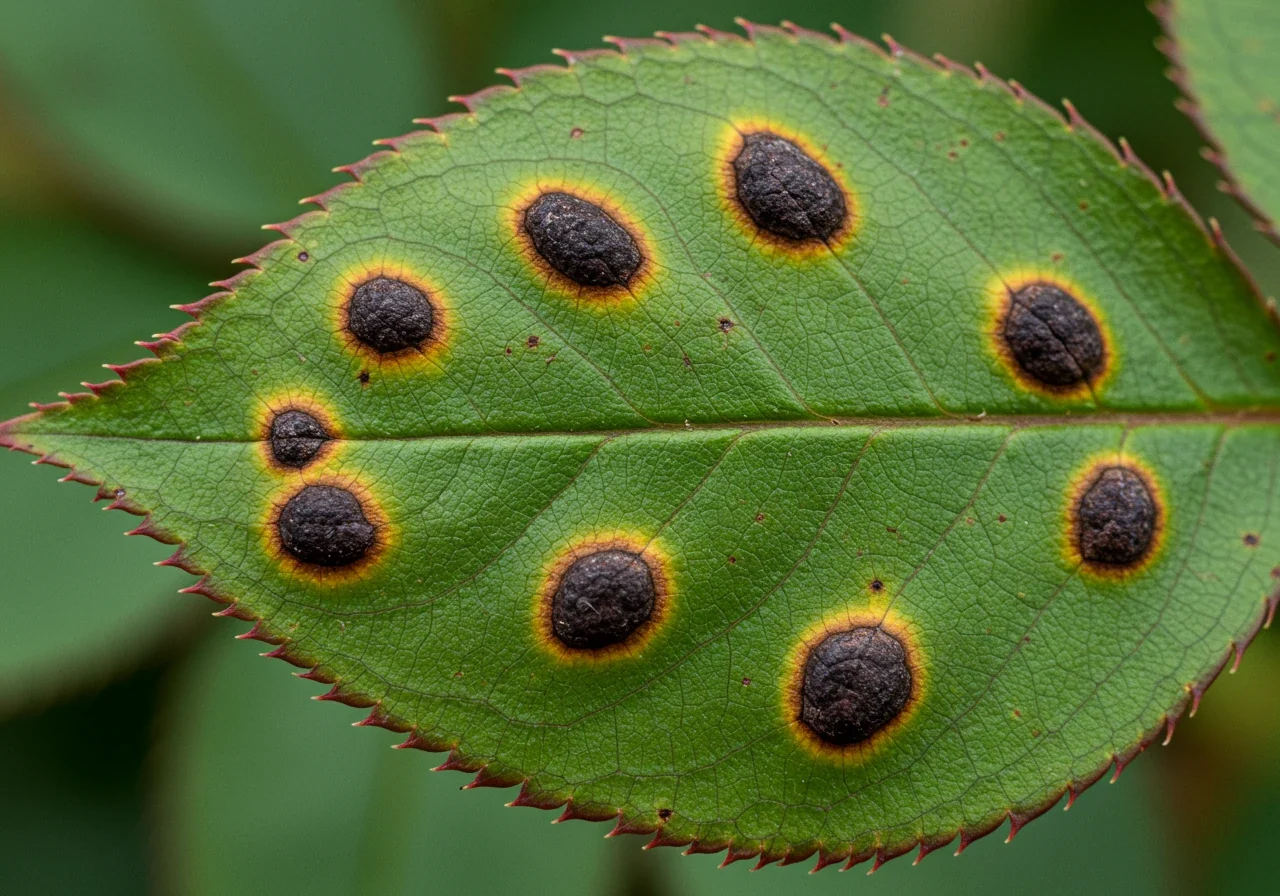
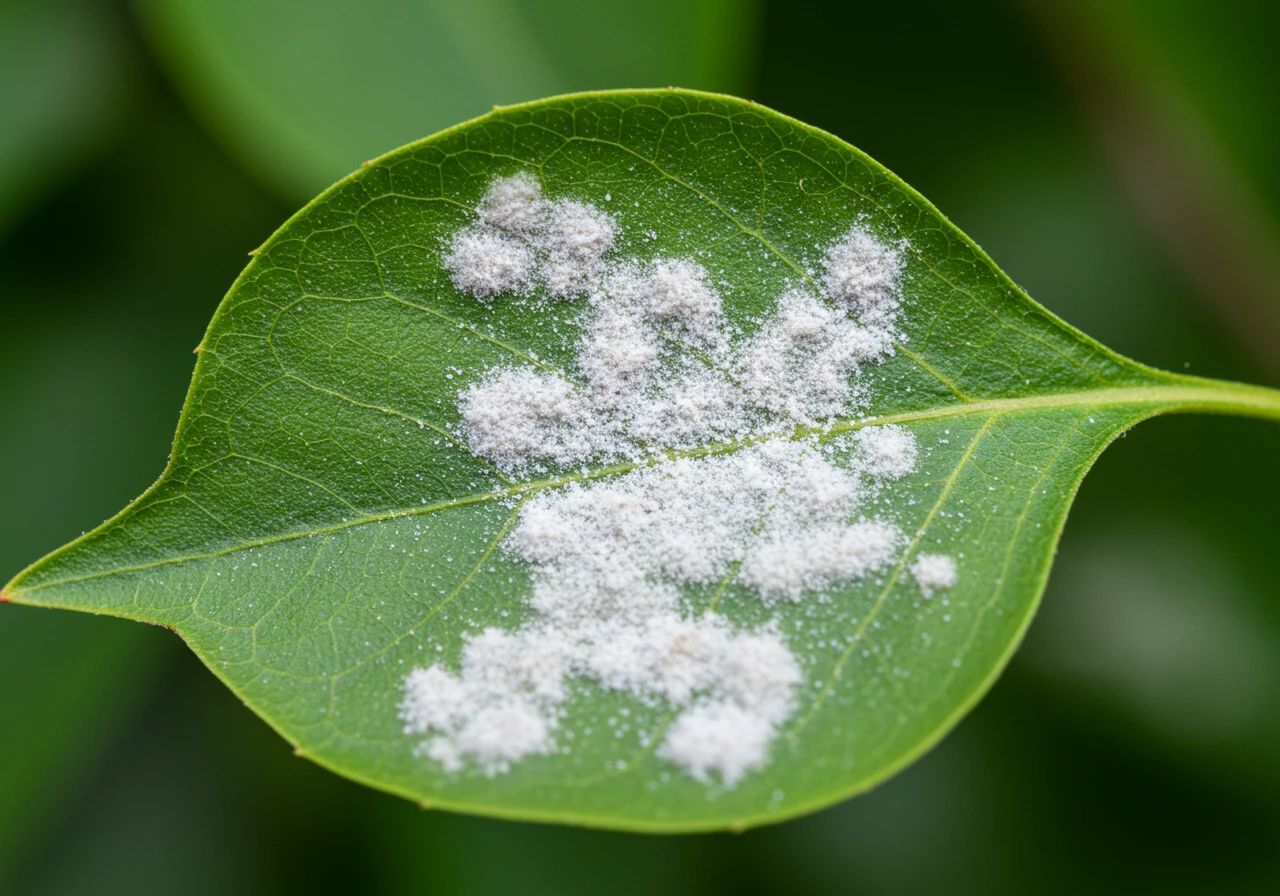
-
Powdery Mildew: This one's pretty easy to spot – it looks just like someone dusted your plant leaves (and sometimes stems or flowers) with white or greyish powder. It's a fungal disease that *loves* high humidity but, surprisingly, doesn't need free-standing water on the leaves to get started. Think warm days and cool, damp nights.
- Symptoms: White/grey powdery patches on leaves, distorted growth, yellowing leaves.
- Common Victims: Lilacs (a big one!), peonies, bee balm, phlox, cucumbers, squash. You'll see it pop up in many Manotick gardens during humid spells.
- Favourable Conditions: High humidity, moderate temperatures (15-27°C), poor air circulation.
-
Black Spot: Rose lovers, you probably know this foe all too well. Black Spot is another fungal troublemaker, causing distinctive black spots on leaves, usually with feathery or yellow edges. Infected leaves often turn yellow and drop off prematurely, weakening the plant.
- Symptoms: Circular black spots (often fringed) on leaves, yellowing around spots, leaf drop.
- Common Victims: Roses are the main target!
- Favourable Conditions: Wet leaves (needs about 6-7 hours of wetness), moderate temperatures. Spores splash up from the ground or infected debris. Proper mulching and edging can help prevent soil splash.
-
Leaf Spot (General Fungal/Bacterial): This is more of a catch-all term for various diseases that cause spots on leaves. The spots can vary in size, shape, and colour (brown, black, tan, sometimes with borders). Severe cases can lead to leaf yellowing and drop.
- Symptoms: Spots on leaves (various colours/shapes), sometimes holes ("shot hole"), leaf yellowing/drop.
- Common Victims: A huge range! Hostas, hydrangeas, tomatoes, maples, crabapples – many common landscaping plants.
- Favourable Conditions: Often wet, humid weather. Like Black Spot, spores often spread via water splash or overwinter in fallen leaves. Consistent garden maintenance makes a big difference in managing leaf spot issues. Removing fallen, infected leaves is crucial; if you're dealing with a large amount of debris, a service like the Marionville garden clean up service can help get things tidy.
Your Step-by-Step Spring Garden Health Scan: Become a Plant Detective!
Okay, team green-thumb! Grab your metaphorical magnifying glass (or a real one!) because it's time to become a plant detective. Performing a Spring Garden Health Scan is your best bet for catching sneaky plant problems before they throw a full-blown, unwanted party in your Winchester garden. Think of it as giving your plants a friendly wellness check after their long winter nap. Let's get scanning!
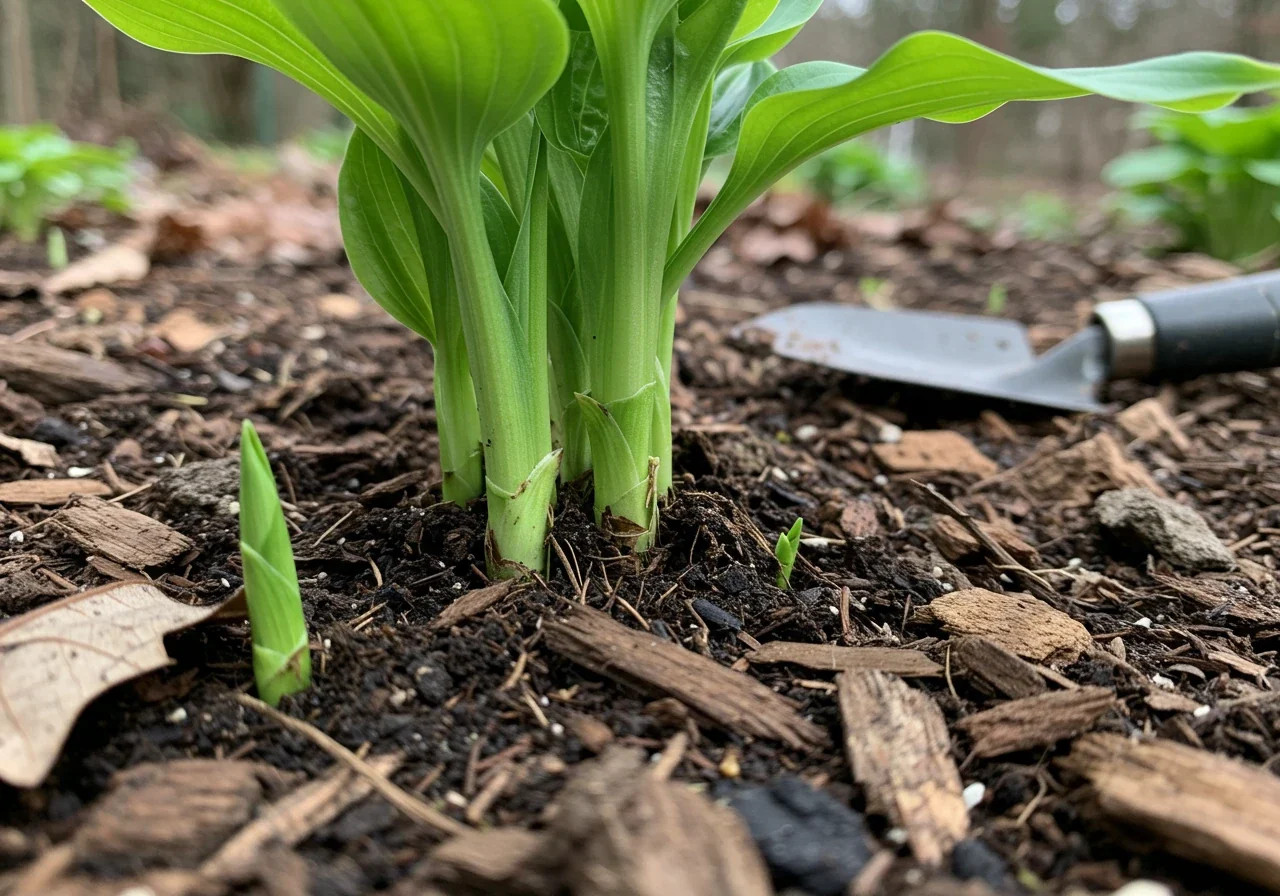
Your Detective Toolkit:
- Your Eyes: Your most important tool!
- Garden Gloves: Keep your hands clean and protected.
- Magnifying Glass (Optional): Great for inspecting tiny spots or potential pests.
- Notepad & Pen (or Phone): For jotting down observations or snapping quick photos. This is *super* helpful for tracking changes or remembering what you saw.
- Small Trowel (Optional): Handy for gently moving mulch or inspecting soil near the base.
The Step-by-Step Scan: Ground Up!
Ready? Let's systematically check things out. The best time for your first scan is early spring, just as things are waking up but before foliage gets too dense. Aim to repeat this every few weeks, especially after those notoriously wet Ottawa spring spells.
1. Start at the Bottom (The Foundation)
Crouch down and look closely at the soil level around the base of your plants. Look For: Mushy or rotting mulch right against stems? Weird fungal growth on the soil surface? Signs of pests? Old, diseased leaves or debris? A clean base is crucial. If debris is overwhelming, consider an effective Ottawa garden clean up service. Action: Gently pull back mulch, remove debris. Prompt removal is key; a dedicated Marionville garden clean up service can help.
2. Inspect Stems and Lower Leaves (The Trunk & Ankles)
Move your gaze slightly up the plant. Look For: Dark spots, lesions, cankers, or fuzzy growth on stems? Are the lowest leaves showing spots, yellowing, wilting, or powdery mildew? Action: Note location and appearance. Minor spots might need monitoring; widespread issues need attention.
3. Examine Upper Leaves and New Growth (The Canopy)
Now check the main foliage and tender new growth. Look For: Spots, holes, chewed edges, sticky residue, webbing, weird discolouration, curled or distorted leaves? Are flower buds misshapen? Action: Document what you see. Pests and diseases often target new growth first.
4. Consider the Overall Vibe (The Big Picture)
Step back and look at the whole plant. Look For: Does it seem generally unhappy, stunted, or off-colour? Is it wilting even if the soil feels moist? Action: Sometimes the overall look signals an issue, even if specific signs are subtle.
5. Don't Forget the Lawn!
Take a peek at your lawn, especially in areas like Russell or Embrun. Look for grey or pink snow mold patches, dead areas, or thinning. A healthy lawn is part of a healthy landscape. For overall yard health after winter, consider an Ottawa property cleanup service. Remember, tidiness helps prevent issues spreading from or to areas managed by a potential city property cleanup service.
Document Your Findings!
Seriously, write it down or take photos! "Small brown spots on lower hosta leaves, May 5th" is much more helpful than trying to remember weeks later. Good notes help you track if problems are worsening, spreading, or resolving. Plus, photos are invaluable if you need to ask for advice later or simply want to admire the positive garden transformations you achieve through diligent care!
An Eco-Friendly Note:
If you spot trouble, resist the urge to immediately reach for harsh chemicals. Often, simply pruning off affected leaves or stems (and disposing of them properly – not in the compost!), improving air circulation, or using insecticidal soap for pests is enough. Prevention and early, targeted action are your greenest tools!
By becoming a regular plant detective, you'll catch issues early, leading to a healthier, more resilient, and beautiful Winchester garden all season long! Happy scanning!
Prevention Power-Up: Keeping Your Garden Healthy All Season
Okay, plant detectives, you've done your initial scan – high five! But keeping that garden vibrant isn't just a spring fling; it's a season-long commitment to prevention. Think of it as giving your garden superpowers to fend off trouble. Let's power up!
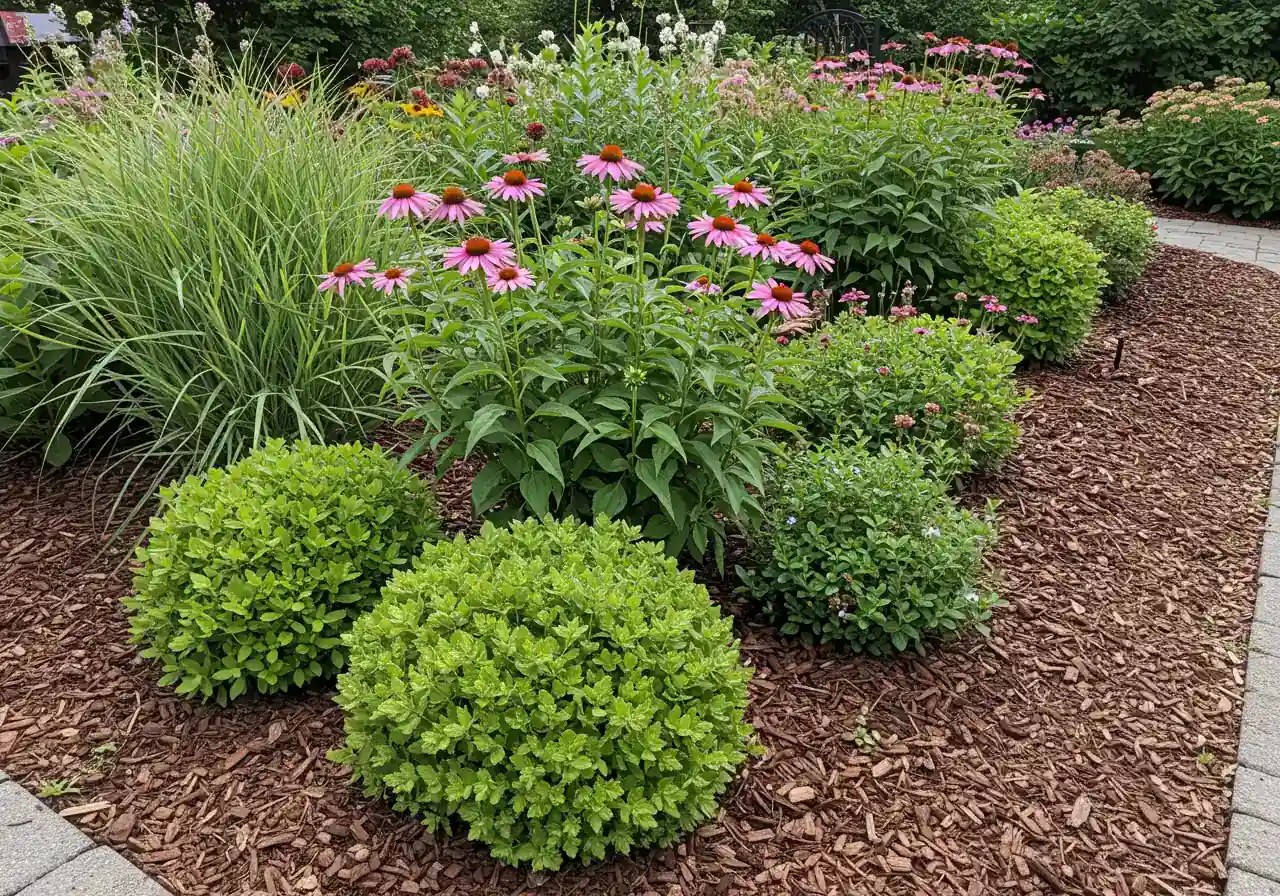
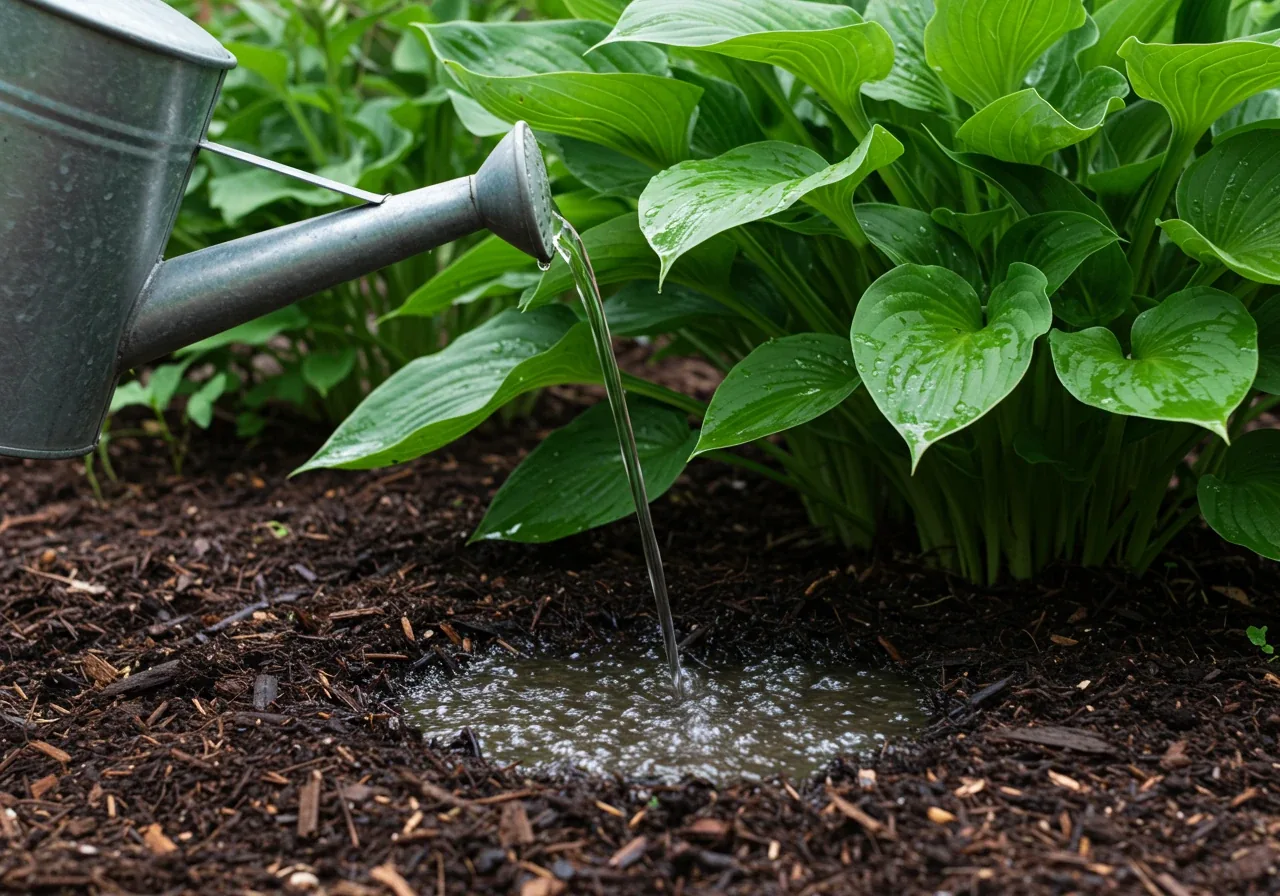
Build from the Ground Up: Super Soil!
Healthy plants start with healthy soil. Here in the Ottawa area, many of us wrestle with heavy clay soil. While it holds nutrients, it can also compact easily and drain slowly, which many plant roots don't appreciate.
Power Move: Regularly amend your soil with compost or other organic matter. This improves drainage, adds nutrients, and creates a better home for roots. Good soil preparation is foundational, whether improving existing beds or starting fresh, maybe even considering expert new lawn sod installation on well-prepared ground.
Water Smarter, Not Harder
Wet leaves are practically an open invitation for fungal diseases like powdery mildew and leaf spot.
Power Move: Water the *base* of your plants, not the leaves. Aim for deep, less frequent watering early in the morning so any stray splashes dry quickly. Check if the soil is actually dry an inch or two down before watering – overwatering is just as bad!
Cleanliness is Next to Plant-liness
Good garden hygiene is your secret weapon. Diseases love to hang out on dead leaves and debris.
Power Move: Regularly remove yellowing or spotted leaves *throughout the season*. Don't let diseased material pile up. Clean your pruners between plants. A tidy garden is less hospitable to pests and pathogens. Consistent cleanup prevents small issues from becoming big ones; sometimes a thorough seasonal effort, like what a dedicated Marionville property cleanup service provides, is needed. Don't forget property edges – tidiness prevents problems spreading to/from areas managed by a city property cleanup service.
Give 'Em Room to Breathe
Crowded plants compete for resources and lack air circulation. Stagnant, humid air is a breeding ground for fungi.
Power Move: Space plants according to their mature size – resist cramming them in! Prune dense shrubs or perennials to open up their centres and improve airflow.
Choose Wisely, Plant Happily
Some plants are naturally more prone to certain diseases. Why fight an uphill battle?
Power Move: Select plant varieties known to be resistant to common local diseases and suited to Ottawa's climate (Zone 5!). Making informed choices upfront saves headaches later. This applies to everything; investing time in smart landscaping material selection pays dividends.
Mulch: The Unsung Hero
A layer of organic mulch (like shredded bark or wood chips) is fantastic!
Power Move: Apply a 2-3 inch layer of mulch around plants (but not touching the stems!). It suppresses weeds, conserves moisture, *and* prevents soil-borne fungal spores from splashing onto leaves during rain or watering.
Putting these practices into a routine means your garden is consistently cared for. Your plants will show their appreciation with vibrant growth and resilience. There's real satisfaction in seeing your proactive efforts pay off – your garden will practically send you a thank you note for the preventative care!
Eco-Friendly & Effective: Managing Disease the Green Way
Okay, so you've spotted some trouble brewing in your Winchester garden paradise, but you're hesitant to break out the heavy-duty chemicals. High five! Managing plant diseases the "green way" isn't just trendy; it's effective, smarter, and much kinder to the buzzing bees, fluttering butterflies, and hardworking earthworms that share our space. Think of it as being a garden guardian – using brains over brawn to keep things healthy.
This approach often uses principles from "Integrated Pest Management" (IPM). Don't let the fancy name scare you! IPM basically means: look closely, prevent problems where you can, and use the gentlest effective solution *first*.
The golden rule of green disease management? Start with the basics:
- Cultural Controls: This is your first line of defense! It includes all those good gardening habits like choosing disease-resistant plant varieties (super important when planning any new garden installation plan), giving plants enough room for air circulation, watering the soil not leaves, and keeping things tidy. Removing infected leaves promptly is crucial. If you've inherited a mess, a thorough cleanup like a professional Metcalf property cleanup service can start you fresh. Consistent tidiness, maybe through a regular city garden maintenance service, is key. A comprehensive spring tidy similar to a dedicated city yard cleanup service reduces potential problems.
- Biological Controls: Sometimes, you can introduce beneficial organisms to help out. Think ladybugs for aphids or specific beneficial nematodes. Nature fighting nature!
Only *after* trying these steps should you consider treatments. Opt for lower-toxicity options approved for organic gardening, like:
- Horticultural oils or insecticidal soaps
- Copper or sulfur-based fungicides
Crucially, always, always, always identify the specific disease correctly *before* treating. Follow label instructions exactly. Think precise strike, not carpet bombing.
Why go to this trouble? Because our gardens in Ottawa, from Barrhaven to Kanata, aren't isolated islands. Choosing eco-friendly methods protects pollinators, beneficial insects, birds, and waterways. Your local ecosystem will practically send you a mental thank you note! Check our Privacy Policy for data handling.
Disease Prevention Impact (Example)
This simple chart illustrates how preventative measures can potentially reduce disease incidence compared to no action.
*Illustrative data showing potential reduction in disease severity.
Spring Scan Superpowers: Quick Tips
Got your garden detective hat on but need some quick-fire answers? You're in the right place! Consider this your FAQ pit stop for supercharging your Spring Garden Health Scan.
Take a deep breath – don't panic! First, snap a clear picture and note the location and date. If it’s just a couple of leaves, snip them off with *clean* pruners and discard in household garbage (not compost). Monitor the plant. If widespread or worsening, seek professional diagnosis. Sometimes tackling large amounts of diseased material is part of a broader Ottawa yard clean up service.
Aim for a good look every 2-3 weeks during active spring growth, especially after wet weather. Check known problem plants more often. It's about building observation into your routine. Curious about our approach? Read about us and our commitment.
Nope, absolutely *not* too late – do it now! Leftover debris harbors spores and pests. Gently rake away soggy leaves and trim dead stems, being careful of new growth. This significantly cuts down disease risk. If it's a big job, a city yard cleanup service or similar professional help can tackle it.
It's possible, especially fungal spores via wind or splash. Focus on your own garden's defenses: healthy plants, good practices (soil, watering, airflow), resistant varieties, and clean tools. Maintain a clean buffer zone if possible. For service specifics, see our terms and conditions.
Reputable companies provide estimates based on property size and tasks needed (cleanup, pruning, lawn care, etc.). Request a quote directly – many offer online forms like our contact us page. We value transparency and welcome feedback on estimates.
FAQs: Your Ottawa & Winchester Garden Questions Answered
Got questions buzzing around your head faster than bees in a flower patch? We hear you! Gardening in the Ottawa valley, from Winchester to the suburbs, comes with its own unique quirks. Here are answers to some common queries we get.
You nailed it – that wild weather keeps the ground soggy and really stresses out plants just waking up, making them more vulnerable. Fungi absolutely *love* those damp, cool conditions. Think of it like rolling out a welcome mat for common diseases like snow mold or various leaf spots. Removing old soggy debris and ensuring good soil drainage helps counteract this soggy start.
Clay soil can definitely be tricky! It holds moisture well, which is good sometimes, but slow drainage means plant roots can sit in water too long. This weakens them, inviting root rot and making them easier targets for other diseases. Improving your clay soil structure over time with lots of compost helps immensely with drainage and boosts overall plant health. Learn more about soil preparation techniques.
Great question! You want to clean up once the ground isn't frozen solid but *before* your plants put on lots of new, tender growth. Removing soggy old leaves and stems gets rid of places where disease spores spent the winter. Waiting until it's slightly drier also helps avoid compacting wet soil. For focused tasks like this, consider a professional Metcalf garden clean up service to ensure it's done effectively.
Generally, yes! Eco-friendly options usually mean lower toxicity and more targeted action compared to harsh, broad-spectrum chemicals – especially when used *exactly* as the label directs. But remember, prevention through good gardening habits (cleanup, airflow, smart watering) is always the safest first step! You can learn more about us and our commitment to responsible practices for peace of mind when considering professional help.
Focus on fortifying your side of the fence! Ensure your own roses have excellent air circulation – don't be afraid to prune them appropriately. Always water the soil at the base, not the leaves, and meticulously clear away *all* fallen leaves from last year. Applying a layer of mulch is also great for preventing spores from splashing up from the soil onto leaves.
Not usually! Many companies offer comprehensive property clean up services designed to tackle both lawns and garden areas together. This typically includes leaf removal, trimming dead plant material, and generally tidying the entire landscape across your Winchester or Ottawa property. It’s often more efficient, like getting a full spring refresh such as the Metcalf yard cleanup service provides for the whole area. Other options include Marionville yard cleanup service, city garden clean up service, or city property cleanup service depending on your location and needs.
Reputable Ottawa Garden Resources:
- City of Ottawa - Tree and Urban Forest Health
- Friends of the Central Experimental Farm
- Garden Ontario (formerly Ontario Horticultural Association) - Find local societies.
- OMAFRA - Ontario Ministry of Agriculture, Food and Rural Affairs (Gardening Section)
Conclusion: A Healthy Garden is a Happy Garden (and We Can Help!)
So, there you have it! We've journeyed through the sometimes soggy, always interesting world of spring plant health in Ottawa. The main takeaway? Being a little proactive *now* with a Spring Garden Health Scan and some preventative TLC saves you headaches (and potentially heartaches!) later. Spotting trouble early and using smart, often simple, strategies means less stress fighting diseases and more time kicking back and enjoying your gorgeous, thriving garden space. Honestly, a healthy garden just *looks* happier, and isn't that what we all want? Your plants might not send a thank-you card, but their vibrant leaves and blooms will be praise enough!
Here at Clean Yards, we're passionate about helping Ottawa homeowners create and maintain beautiful, healthy landscapes. We understand the unique quirks and challenges of gardening in this region – from the clay soil some wrestle with in Greely to the specific microclimates around Manotick, Osgoode, Nepean, Metcalfe, Richmond, Winchester, Kars, Vernon, Kenmore, Russell, Embrun, and Barrhaven. We've got boots-on-the-ground experience across the area! Find us on Google My Business too!
Ready to give your garden a professional check-up? Let our experienced team perform a thorough Spring Garden Health Scan for you. We’ll spot potential issues and provide actionable advice.
Have other landscaping or garden maintenance needs? From spring property cleanups and mulching to ongoing garden care, we’re ready to assist. Check out all our services.
Give us a call today at 613-701-4613 or visit us online at CleanYards.ca to learn more and request your free estimate. Let's work together to make your garden the happiest – and healthiest – on the block!

